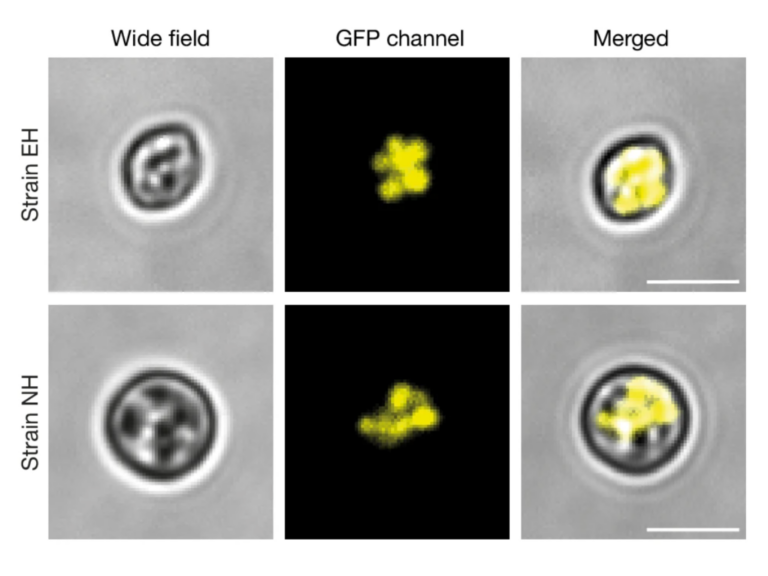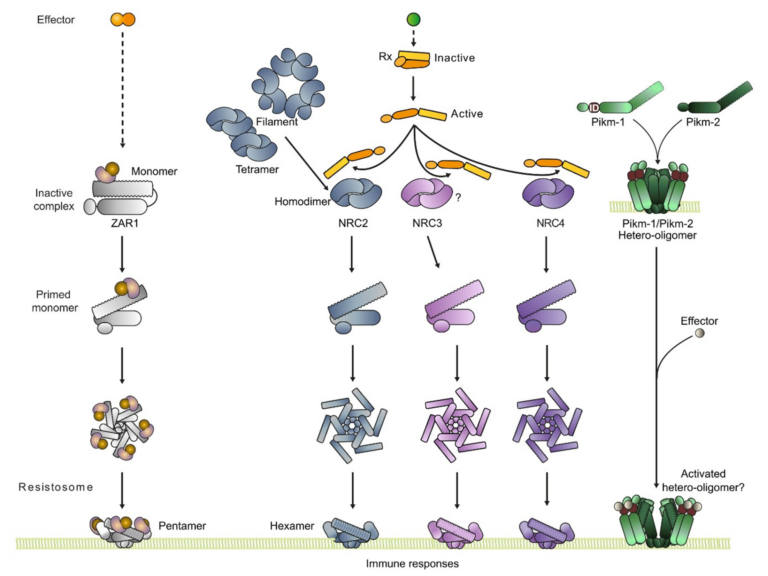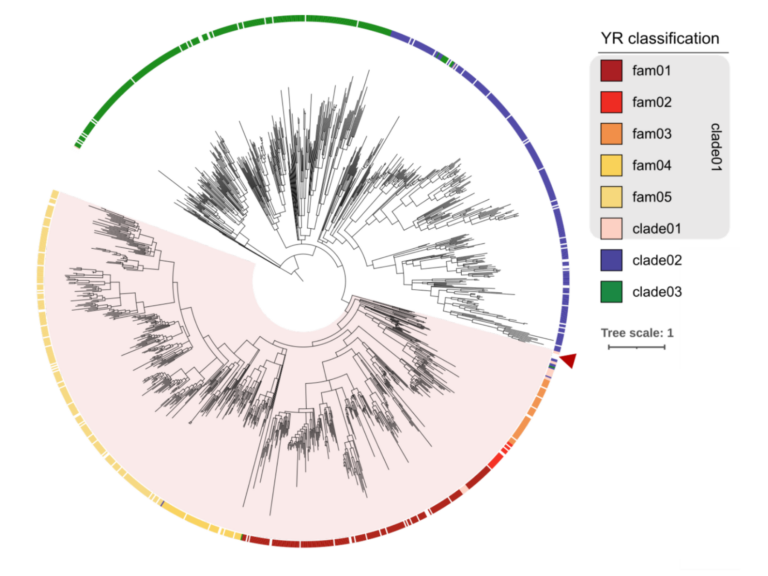Bioengineering secreted proteases converts divergent Rcr3 orthologs and paralogs into extracellular immune co-receptors
Secreted immune proteases Rcr3 and Pip1 of tomato are both inhibited by Avr2 from the fungal plant pathogen Cladosporium fulvum but only Rcr3 act as a decoy co-receptor that detects Avr2 in the presence of the Cf-2 immune receptor. Here, we identified crucial Rcr3 residues for Cf-2-mediated signalling and bioengineered various proteases to trigger Avr2/Cf-2 dependent immunity. Despite substantial divergences in Rcr3 orthologs from eggplant and tobacco, only minimal alterations were sufficient to trigger Avr2/Cf-2-triggered immune signalling. Tomato Pip1, by contrast, was bioengineered with 16 Rcr3-specific residues to initiate Avr2/Cf-2-triggered immune signalling. These residues cluster on one side next to the substrate binding groove, indicating a potential Cf-2 interaction site. Our findings also revealed that Rcr3 and Pip1 have distinct substrate preferences determined by two variant residues and that both proteases are suboptimal for binding Avr2. This study advances our understanding of the evolution of Avr2 perception and opens avenues to bioengineer proteases to broaden pathogen recognition in other crops.


